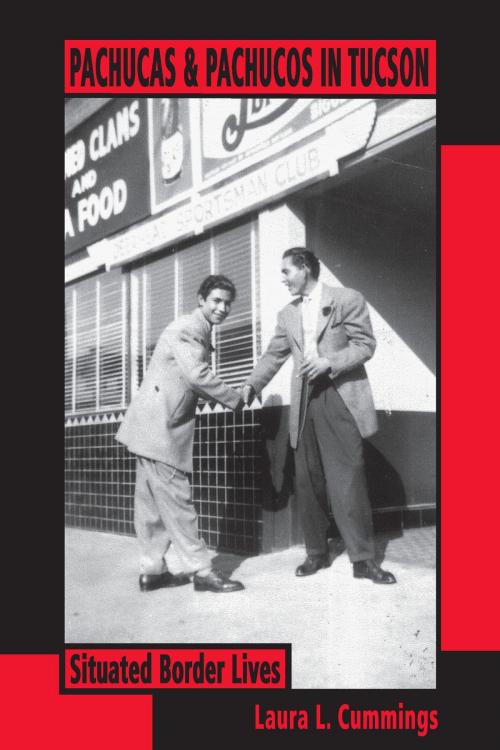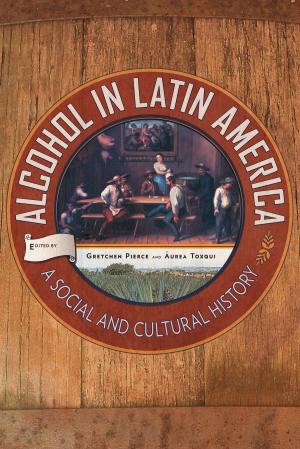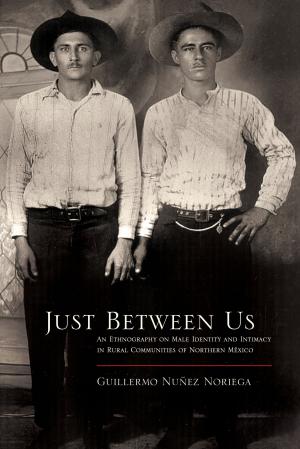Pachucas and Pachucos in Tucson
Situated Border Lives
Nonfiction, Social & Cultural Studies, Social Science, Cultural Studies, Ethnic Studies| Author: | Laura L. Cummings | ISBN: | 9780816532988 |
| Publisher: | University of Arizona Press | Publication: | October 19, 2015 |
| Imprint: | University of Arizona Press | Language: | English |
| Author: | Laura L. Cummings |
| ISBN: | 9780816532988 |
| Publisher: | University of Arizona Press |
| Publication: | October 19, 2015 |
| Imprint: | University of Arizona Press |
| Language: | English |
When the Zoot Suit Riots ignited in Los Angeles in 1943, they quickly became headline news across the country. At their center was a series of attacks by U.S. Marines and sailors on young Mexican American men who dressed in distinctive suits and called themselves pachucos. The media of the day portrayed these youths as miscreants and hoodlums. Even though the outspoken First Lady, Eleanor Roosevelt, quickly labeled them victims of race riots, the initial portrayal has distorted images ever since. A surprising amount of scholarship has reinforced those images, writes Laura Cummings, proceeding from what she calls “the deviance school of thought.”
This innovative study examines the pachuco phenomenon in a new way. Exploring its growth in Tucson, Arizona, the book combines ethnography, history, and sociolinguistics to contextualize the early years of the phenomenon, its diverse cultural roots, and its language development in Tucson.
Unlike other studies, it features first-person research with men and women who—despite a wide span of ages—self-identify as pachucos and pachucas. Through these interviews and her archival research, the author finds that pachuco culture has deep roots in Tucson and the Southwest. And she discovers the importance of the pachuco/caló language variety to a shared sense of pachuquismo. Further, she identifies previously neglected pachuco ties to indigenous Indian languages and cultures in Mexico and the United States.
Cummings stresses that the great majority of people conversant with the culture and language do not subscribe to the dynamics of contemporary hardcore gangs, but while zoot suits are no longer the rage today, the pachuco language and sensibilities do live on in Mexican American communities across the Southwest and throughout the United States.
When the Zoot Suit Riots ignited in Los Angeles in 1943, they quickly became headline news across the country. At their center was a series of attacks by U.S. Marines and sailors on young Mexican American men who dressed in distinctive suits and called themselves pachucos. The media of the day portrayed these youths as miscreants and hoodlums. Even though the outspoken First Lady, Eleanor Roosevelt, quickly labeled them victims of race riots, the initial portrayal has distorted images ever since. A surprising amount of scholarship has reinforced those images, writes Laura Cummings, proceeding from what she calls “the deviance school of thought.”
This innovative study examines the pachuco phenomenon in a new way. Exploring its growth in Tucson, Arizona, the book combines ethnography, history, and sociolinguistics to contextualize the early years of the phenomenon, its diverse cultural roots, and its language development in Tucson.
Unlike other studies, it features first-person research with men and women who—despite a wide span of ages—self-identify as pachucos and pachucas. Through these interviews and her archival research, the author finds that pachuco culture has deep roots in Tucson and the Southwest. And she discovers the importance of the pachuco/caló language variety to a shared sense of pachuquismo. Further, she identifies previously neglected pachuco ties to indigenous Indian languages and cultures in Mexico and the United States.
Cummings stresses that the great majority of people conversant with the culture and language do not subscribe to the dynamics of contemporary hardcore gangs, but while zoot suits are no longer the rage today, the pachuco language and sensibilities do live on in Mexican American communities across the Southwest and throughout the United States.















